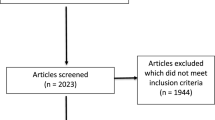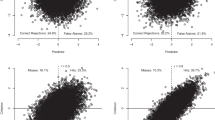Abstract
Introduction: A system of teaching evaluation was developed at the Second Military Medical University, Shanghai. The system combined student ratings of teachers with peer reviews. This study explores factors that may influence teaching evaluations, as well as the perceptions of effectiveness of the evaluation system. Methods: Teaching evaluation data from 2006 to 2009 were analyzed. A survey was conducted to collect the perceptions of students and faculty members about the system. Results: Teaching evaluation ratings were higher when the faculty knew which course session would be observed. Student ratings showed a correlation with peer ratings. Advanced students provided higher ratings. Currently employed faculty peer reviewers provided higher ratings than retired reviewers. Peer reviewers in the same department as the faculty being observed provided higher ratings than peers from other departments. Reviewers with prior experience provided ratings similar to new reviewers. All faculty members indicated they would not make their course easier in response to student evaluations. Conclusion: The year of student enrollment in the program, relationships among peer reviewers and faculty, and whether faculty are cognizant of which session would be observed have a direct impact on rating results. There is a correlation between the student evaluation and peer evaluation. Training reviewers is important to improve rating validity. Faculty members appreciate the assistance for improvement of teaching provided by the evaluations.
Similar content being viewed by others
References
Rosenbaum ME, Ferguson KJ, Kreiter CD, Johnson CA. Using a peer evaluation system to assess faculty performance and competence. Fam Med. 2005;37(6):429–33.
Gimbel RW, Cruess DF, Schor K, Hooper TI, Barbour GL. Faculty performance evaluation in Accredited U.S. Public Health Graduate Schools and Programs: a national study. Acad Med. 2008;83:962–68.
Bland CJ, Wersal L, VanLoy WE, Jacott W. Evaluating faculty performance: a systematically designed and assessed approach. Acad Med. 2002;77:15–30.
Paulsen MB. Evaluating teaching performance. New Directions for Institutional Research. Wiley Periodicals, Inc. 2002.
Valle R, Alaminos I, Contreras E, Salas L E, Tomasini P, Varela M. Student questionnaire to evaluate basic medical science teaching. Rev Med IMSS. 2004; 42(5):405–11.
Jahangiri L, Mucciolo TW, Choi M, Spielman AI. Assessment of teaching effectiveness in U.S. dental schools and the value of triangulation. J Dent Educ. 2008;6:707–18.
Williams BC, Pillsbury MS, Stern DS, Grum CM. Comparison of resident and medical student evaluation of faculty teaching. J Educ Eval Health Prof. 2001(24)1:53–60.
Copeland HL, Hewson MG. Developing and testing an instrument to measure the effectiveness of clinical teaching in an academic medical center. Acad Med. 2000;75:161–166.
Beckman TJ, Ghosh AK, Cook DA, Erwin PJ, Mandrekar JN. How reliable are assessments of clinical teaching: a review of the published instruments. J Gen Intern Med. 2004;19:971–77.
Irby DM. Peer review of teaching in medicine. J Med Educ. 1983;(58)6:457–61.
Kogana JR, Sheab JA. Course evaluation in medical education. Teach Teach Educ. 2007;(23):251–64.
Downing SM. Threats to the validity of clinical teaching assessments: what about rater error? Med Educ. 2005;39:350–55.
Norcini JJ. Peer assessment of competence. Med Educ. 2003;37:539–43
Wen SH, Jiang XB, Yang H. Problems in evaluating teaching quality in colleges and universities and related measures to deal with the problems. Res Med Educ. 2003;(2)4:17–19.
Wen SH, Jiang XB, Jiang P. Study on the problems in the teaching evaluation system and feedback in university. Northwest Med Educ. 2004;(12)1:20–21.
Li P, Wang ZW, Wang ZQ, Wang Y. Study on the situation and tendency of teaching evaluation in university in China. Northwest Med Educ. 2009;(17)2:211–12
Cao J, Chen LL, Chen WH. Comparison and analysis of teaching quality assessment between students and teaching supervisors. Chin J Med Educ. 2006;(26)3:92–93.
Wu YP, Qian FP. Problems of student evaluation of teaching quality in colleges and universities. Chin Elec Educ. 2009;8:53–54.
Huemer M. Student evaluations: a critical review. See: http:///home.sprynet.com/~øwl//sef.htm
Levine H, Vanek E, Lefferts G, Michener W, Weiker G. A peer review process to assess the quality of graduate medical education. J Med Educ. 1988;(63)4:288–93.
Fu LQ, Li JC, Zhang XM. Situation and countermeasures of the educational inspection for colleges and universities. Res Med Educ. 2008;(7)11:1136–37.
Chen RS. Study on the correlation between peer review and student evaluation of teaching. Petrolic Educ. 2009;3:56–58
Author information
Authors and Affiliations
Corresponding author
Rights and permissions
About this article
Cite this article
Wen, SH., Ma, XQ., Carline, J.D. et al. Factors that Impact Teaching Evaluations: a Case Study. Med.Sci.Educ. 21, 210–215 (2011). https://doi.org/10.1007/BF03341709
Published:
Issue Date:
DOI: https://doi.org/10.1007/BF03341709




